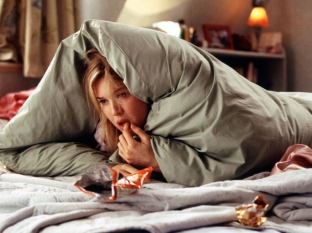Everyone is well aware of the postulate about the dangers to health of late dinners. According to him, eating at night contributes to weight gain, sleep disturbance, deterioration of the skin condition, and in the morning "rewards" feeling of heaviness in the stomach. And in general, frequent eating late in the evening destroys us and ages us. However, medicine and science are developing, new studies are emerging that significantly shake the judgments about a healthy lifestyle, previously considered unshakable. Let's try to figure out whether it is harmful to eat at night or not.
Late dinners and sleep quality
There is no doubt that how our day goes and what we eat during the day also affects our sleep. As for the harmful effects of eating at night, the results of studies on this subject are contradictory. And fundamental in this matter is an individual approach to nutrition before bedtime. In favor of the fact that it is imperative to refuse to eat before going to bed, is the presence of diseases of the gastrointestinal tract. For example, for a person suffering from gastritis, dinner at night is contraindicated, since stomach or headaches are inevitable in the morning. Lower back pain is also not ruled out. And more important is the fact that the older the person, the larger the “window” should be. between the last meal and bedtime.
In other cases, you need to focus on personal feelings. And ideally, the break between the evening meal and breakfast should be, according to research by European nutritionists, about 9 hours. If it lasts 12 hours or more, it is also fraught with an increased risk of developing gastrointestinal diseases. But at the same time, the correct distribution of the amount of food consumed during the day is important.
Undoubtedly, a hearty meal before bedtime invigorates the body, but if in practice this does not interfere with your sleep, you can afford to feast on it. It is only important to exclude from the extreme meal those foods that still interfere with your normal sleep. It should be remembered that the main thing is not when, but what exactly you eat.

Late eating and body weight
Your weight will not be affected by eating before bed unless you overeat. It's all about the number of calories, but not the timing of the meal: i.e. energy consumption should not exceed energy expenditure.
If you go over the calories burned during the day, you expose yourself to the fact that you will always gain extra pounds. But if you maintain an energy balance, then you can divide your daily diet as you wish. However, don't take it to the extreme. If, there is little to eat during the day (for various reasons: I didn’t feel like it, I didn’t have time for a full meal, etc.), and then at the end of the day, use a diet designed for the whole day – it is difficult, harmful, and stupid. By not following the diet and skipping breakfast or lunch, you force yourself to experience severe hunger. And returning home in the evening, having lost control over your appetite, trying to compensate for what you didn’t receive during the day, you thus eat too much. And the result is disappointing: weight gain. The best option –
Thus, with regard to late dinners, estet-portal.com recommends adhering to reasonable dietary control and balanced nutrition in this matter. We also note that there is a concept of adaptation of the body to constantly repeating conditions, in other words, if a person is used to eating at night, then his body adapts to such meals and accordingly builds chains of reactions required for the correctness of vital processes.






Add a comment